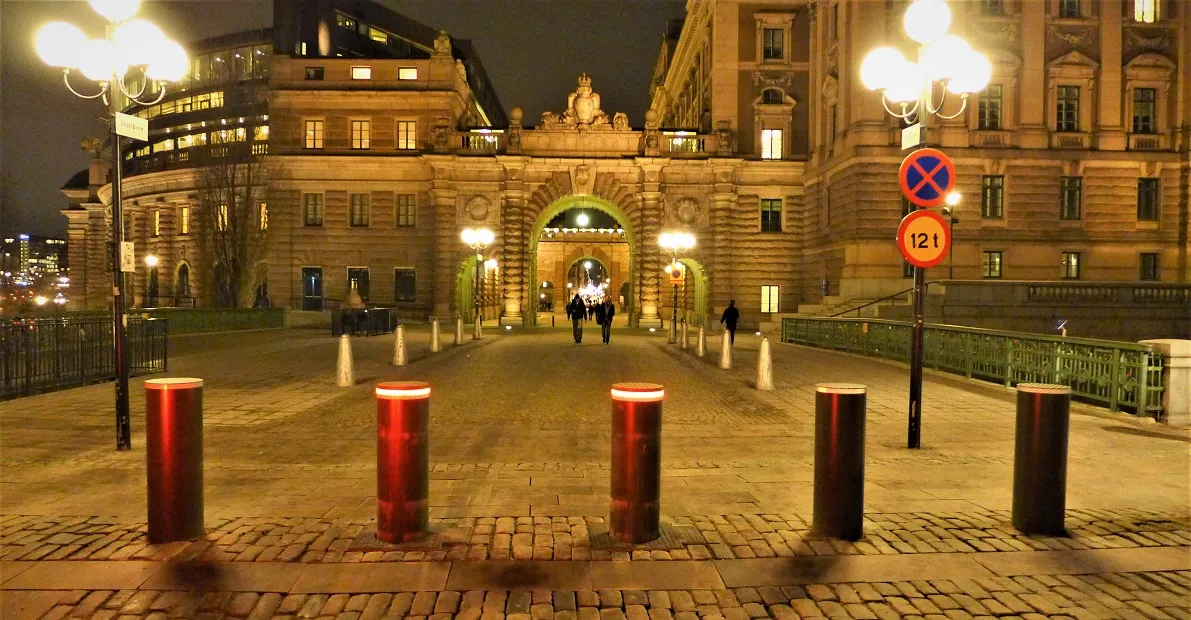Time to shed more light on money in Swedish politics

The recent revelations that some political parties in Sweden have tried to circumvent donation rules shows it is time to reflect on Sweden’s relatively lax regulatory approach and consider practical measures to improve transparency in funding political parties and election campaigns in Sweden. Compared to most European countries, political-party financing is loosely regulated in Sweden and the inadequately controlled flow of money can jeopardizes the quality of governance, even in a top democratic performer like Sweden.
Disclaimer: Opinions expressed in this commentary are those of the author and do not necessarily represent the institutional position of International IDEA, its Board of Advisers or its Council of Member States.
Re-evaluate the current disclosure threshold
Under the current system, political parties in Sweden can receive donations from a wide range of sources. However, donor identities are not publicly disclosed as long as their donations remain below a certain threshold which is set at SEK 24,150 (approximately EUR 2,280). While it is a common practice in Europe to put in place such a disclosure threshold, it often comes with a risk of large donations to be split into smaller amounts under the threshold and to remain anonymous. If the threshold in Sweden is prone to exploitation by political parties as suggested by the media investigations, it is worthwhile to consider lowering the current level.
Increase transparency of “third party” campaigners
Donations have also allegedly been channeled into Swedish politics and elections through “third party” organizations. These organizations typically include party affiliated foundations, fundraising organizations and special interest groups. Political donation from third parties is currently unregulated which has unfortunately created a loophole that allows for large anonymous donations to political parties through foundations/associations. This loophole has been exploited by some parties as far back as 2019. In addition to bringing third parties under the ambit of party-financing regulation, financial-reporting obligations should be extended to such organizations to promote transparency and accountability.
Tighten the conditions to receive private donations
Sweden is one of the few countries in Europe that allows foreign donations. According to International IDEA’s Political Finance Database, 77 per cent of European countries including Finland, Iceland and Norway place such restrictions on political parties in order to limit the influence of foreign interests in the internal politics of the country. Sweden should consider following suit. When it comes to private donations, there is no limit in Sweden with regard to the amount and frequency of private donations. The majority of European countries place some sort of limit on the size of donations both during election period and non-election years.
Introduce expenditure reporting by political parties
In Sweden, political parties are required to submit financial reports annually to the Legal, Financial and Administrative Services Agency (Kammarkollegiet in Swedish). In their financial reports, political parties are only required to report on their income. The legislation contains no requirements for political parties to report their expenditures. As Swedish parliamentary parties receive public funding from the state, there is a strong argument that taxpayers’ money spent by political parties should be publicly accounted for.
Improve financial transparency about election campaigns
There is no requirement for political parties to submit separate financial reports specific to elections. Elections in Sweden are normally held in September, but the annual reporting deadline is not until July the following year, which means that there is often a significant delay between the date of elections and information about how parties financed their campaigns. In nearly three quarters of European countries, political parties are required to submit separate financial reports for their election campaigns. Timely reporting and subsequent publication of campaign finance data such as information on candidates and political parties’ funding sources, contribution amounts and spending, can help to ensure that elections are free, fair and sufficiently funded. Kammarkollegiet, the media, civil society organizations (CSOs), and citizens can also use such campaign finance reports to prevent and detect cases of manipulation or undue influence of money in elections. Ultimately, such campaign finance reporting could serve to increase public confidence in the Swedish political parties. It would be ideal if such reporting and disclosure of campaign finances were done digitally as well.
Going forward
Other international organizations such as the Group of States against Corruption (GRECO) and OSCE Office for Democratic Institutions and Human Rights (OSCE/ODIHR) have also made similar recommendations on the political-finance system in Sweden over the years, noting potential shortcomings in relation to foreign donations, party expenditure and election campaign finance reports. While there is no one-size-fits-all approach to regulate the funding of political parties and election campaigns, policymakers as well as the media and watchdog CSOs should not allow the recent scandal to go to waste and seize the opportunity to initiate a meaningful reform debate. Chances are that if corrective measures to improve Sweden’s political-finance system are not taken now, they will have to wait until the next scandal, which legislative inaction would make it more likely. Nobody should want that.
This Commentary was first published in Swedish on OmVärlden.




